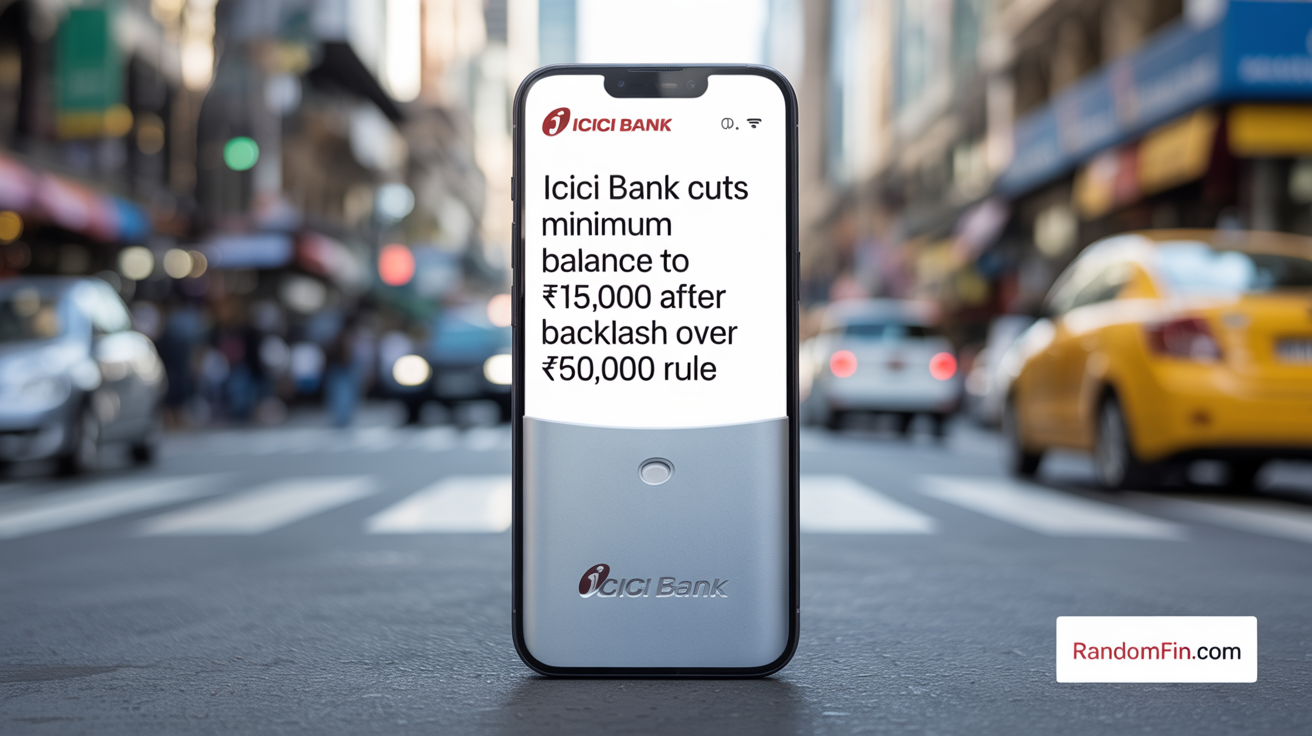Are you looking for Best Cryptocurrency Wallets? If Yes, You are at the right place.
When I first got into crypto, one of the most confusing things was figuring out where to actually store it. With all the hype around Bitcoin and altcoins, people often forget how important a good wallet is. Whether you’re buying your first crypto or already deep into DeFi, having a secure and reliable wallet makes all the difference.
After testing and researching tons of options, I’ve put together this list of the 10 best cryptocurrency wallets in the USA for 2025. These wallets cover everything from beginner-friendly apps to ultra-secure hardware options, so there’s something here for everyone. If you’re also looking to trade your crypto, check out our recommendations for the Best Cryptocurrency Exchanges as well, which provide an excellent selection of platforms to buy, sell, and trade your assets securely.
What is Cryptocurrency?
Cryptocurrency is a type of digital or virtual currency that uses cryptography for security. Unlike traditional currencies issued by governments, cryptocurrencies operate on decentralized networks based on blockchain technology, a distributed ledger that records all transactions across a network of computers.
The most well-known cryptocurrency is Bitcoin, but there are thousands of other cryptocurrencies with various features and uses. For businesses looking to integrate crypto payments, exploring the Best Crypto Payment Gateways in the USA can provide secure and efficient solutions for accepting digital currencies.
What are Cryptocurrency Wallets?
Cryptocurrency wallets are digital tools that allow users to store, send, and receive cryptocurrencies. They come in different forms, including hardware wallets, software wallets, mobile wallets, and web wallets. A cryptocurrency wallet does not store the physical coins but rather the private and public keys needed to access and manage the digital assets on the blockchain.
For those interested in real-world applications, there are also Companies that Use Blockchain Payments to Send Your Money, providing seamless and secure payment solutions.
Top 10 Best Cryptocurrency Wallets in the USA in 2025
When it comes to managing your crypto assets, choosing the right wallet is essential for both security and convenience. Whether you’re holding onto your crypto for the long haul, actively trading, or diving into decentralized finance (DeFi) and NFTs, the right wallet will ensure you can access your funds securely and easily.
Here are the list of Top 10 Best Cryptocurrency Wallets in the USA in 2025..
1. Coinbase Wallet
Coinbase Wallet is a standalone, non-custodial wallet developed by Coinbase, one of the largest and most trusted cryptocurrency exchanges in the USA. Unlike the Coinbase exchange platform, Coinbase Wallet gives you full control over your private keys, meaning you are your own bank. It allows you to store thousands of different cryptocurrencies, access decentralized apps (dApps), and manage NFTs. It’s perfect for users who are already familiar with Coinbase or those looking for an easy entry into the crypto world.
Key Features:
- Non-custodial wallet: Full control over private keys
- Supports over 5,500 cryptocurrencies
- Built-in NFT storage and marketplace integration
- Seamless access to dApps
Pros:
- User-friendly interface, ideal for beginners
- Supports a wide variety of tokens and NFTs
- Secure and backed by Coinbase, a reputable brand
- Easily connects with other Coinbase services for trading and management
Cons:
- Limited advanced features for experienced crypto users
- Heavily connected to the Coinbase ecosystem, which may limit flexibility for some users
2. MetaMask
MetaMask is one of the most popular cryptocurrency wallets for Ethereum and Ethereum-compatible tokens (ERC-20 tokens). It serves as a browser extension for Chrome, Firefox, and Brave, as well as a mobile app. It’s the go-to wallet for decentralized finance (DeFi) enthusiasts and NFT traders, offering a seamless experience for interacting with decentralized applications (dApps) and platforms.
Key Features:
- Supports Ethereum, BNB Chain, Polygon, and other Ethereum-compatible blockchains
- Easy to use with browser integration
- Allows you to interact with DeFi platforms, dApps, and NFTs
- Mobile app for on-the-go use
Pros:
- Extremely popular in the DeFi space
- Multi-chain support for Ethereum-compatible blockchains
- Easy integration with web browsers and dApps
- Widely used for managing NFTs and interacting with smart contracts
Cons:
- Only supports tokens from Ethereum-compatible blockchains
- Can be vulnerable to phishing attacks if users aren’t cautious or don’t follow best practices
3. Ledger Nano X (Hardware Wallet)
The Ledger Nano X is a hardware wallet designed for users who prioritize security. It keeps your private keys offline, making it nearly impossible for hackers to steal your funds. With Bluetooth functionality, it can also be used with mobile devices, which is a big plus for users who want secure access on the go. The Nano X supports over 5,500 cryptocurrencies, including Bitcoin, Ethereum, and many altcoins, making it ideal for long-term investors.
Key Features:
- Secure offline storage of private keys
- Bluetooth support for mobile access
- Supports over 5,500 cryptocurrencies and tokens
- Compatible with both iOS and Android devices
Pros:
- Best-in-class security—offline storage means no internet exposure
- Bluetooth feature for mobile compatibility
- Supports a massive number of assets
- Ideal for long-term storage
Cons:
- Higher cost compared to software wallets
- Requires physical device to access funds, which might be inconvenient for some
- Slight learning curve for those new to hardware wallets
4. Trezor Model T (Hardware Wallet)
The Trezor Model T is another leading hardware wallet, known for its exceptional security and user-friendly touchscreen interface. It supports over 1,000 cryptocurrencies and integrates easily with third-party apps like MetaMask and Exodus. Trezor’s focus on security, combined with a simple yet powerful interface, makes it perfect for both beginners and experienced users who want to keep their crypto assets secure.
Key Features:
- Touchscreen interface for easy use
- Supports over 1,000 cryptocurrencies
- Open-source software
- Integration with third-party wallets like MetaMask and Exodus
- Strong security with offline storage of private keys
Pros:
- Very high security—ideal for long-term storage
- Touchscreen interface for easier navigation
- Open-source software ensures transparency
- Supports a wide variety of cryptocurrencies
Cons:
- Higher price point compared to other wallets
- Lacks wireless connectivity options
5. Exodus
Exodus is a highly regarded desktop and mobile wallet known for its beautiful, intuitive interface. It offers multi-currency support, portfolio tracking, and built-in exchange functionality. For those new to crypto, Exodus offers a simplified experience, and it’s perfect for users who want a secure wallet that’s also easy to use. Additionally, Exodus provides an integrated exchange, so users can swap assets directly within the app.
Key Features:
- Multi-currency support (over 100 assets)
- Integrated exchange for easy swapping
- Built-in portfolio tracker for monitoring assets
- Staking feature for supported coins
Pros:
- Simple and intuitive design with a focus on user experience
- Built-in portfolio tracker to track gains and losses
- Offers staking for certain cryptocurrencies directly within the wallet
Cons:
- Closed-source software, which can be a concern for some users
- No two-factor authentication (2FA) for additional security
6. Trust Wallet
Trust Wallet is a mobile-only wallet owned by Binance that supports a wide variety of cryptocurrencies and decentralized applications (dApps). It’s a top choice for users who regularly trade on decentralized exchanges (DEXs) and need a mobile-friendly solution that is both secure and easy to use. Trust Wallet is known for its simplicity and the fact that it allows users to store both crypto assets and NFTs securely.
Key Features:
- Multi-chain support, including Ethereum, Binance Smart Chain, and more
- Built-in decentralized exchange (DEX) and staking features
- User-friendly interface with a mobile-first design
- Secure private key storage on your device
Pros:
- Wide range of supported cryptocurrencies
- Simple and easy-to-use mobile app
- Built-in DEX and staking features for trading and earning rewards
- Fully decentralized and non-custodial
Cons:
- No desktop version available
- Security is user-dependent (no 2FA feature)
7. Atomic Wallet
Atomic Wallet is a non-custodial, multi-currency wallet that offers full control over private keys. It’s available on both desktop and mobile and supports over 500 cryptocurrencies. It also features built-in atomic swaps, which allow users to trade one cryptocurrency for another directly within the wallet. For those who enjoy managing their crypto portfolio on the go, Atomic Wallet offers mobile access with full control.
Key Features:
- Supports over 500 cryptocurrencies
- Built-in atomic swaps and staking
- Private keys stored locally on your device
- Cross-platform compatibility (desktop and mobile)
Pros:
- Extensive cryptocurrency support
- Built-in exchange and staking functionality
- Local storage of private keys for extra security
- Cross-platform support for both desktop and mobile users
Cons:
- Limited customer support compared to larger platforms
- Not fully open-source, which can be a concern for security-conscious users
8. Edge Wallet
Edge Wallet focuses on user privacy and ease of use. It supports multiple cryptocurrencies and allows users to buy, sell, and exchange crypto directly within the app. Edge Wallet also provides simple backup and recovery options to ensure your funds are secure, making it an excellent choice for users who value privacy and security while maintaining a straightforward interface.
Key Features:
- Multi-currency support for both Bitcoin and altcoins
- Built-in exchange functionality
- Strong privacy and security measures
- Simple backup and recovery process
Pros:
- Strong emphasis on privacy
- Simple, straightforward mobile interface
- Easy-to-use backup and recovery options
- Great for users who prioritize security and privacy
Cons:
- Limited desktop support—only available on mobile devices
- Basic user interface may not appeal to advanced users
9. Electrum (Bitcoin Only)
Electrum is one of the oldest and most trusted wallets in the Bitcoin ecosystem. It’s a lightweight, fast wallet that offers customizable transaction fees and advanced features for experienced Bitcoin users. Electrum’s security features make it an excellent choice for long-term Bitcoin holders who need advanced control over their transactions.
Key Features:
- Lightweight, fast, and secure Bitcoin wallet
- Customizable transaction fees
- Supports hardware wallets for enhanced security
- Open-source software
Pros:
- Fast and lightweight—perfect for experienced users
- Allows for customizable transaction fees
- Supports hardware wallet integration for additional security
Cons:
- Only supports Bitcoin, limiting its usefulness for those with multi-asset portfolios
- Not beginner-friendly—requires some technical knowledge to use effectively
10. BitPay Wallet
BitPay Wallet is a multi-signature wallet developed by BitPay, designed for users who want to send and receive cryptocurrency payments securely. It supports Bitcoin, Ethereum, and stablecoins, allowing users to store and make payments with crypto easily. One of the standout features of the BitPay Wallet is its integration with the BitPay prepaid card, allowing users to spend their crypto as fiat currency
Key Features:
- Multi-signature security for enhanced security
- Supports Bitcoin, Ethereum, and stablecoins
- Integration with the BitPay prepaid card for spending crypto
- Built-in payment options for merchants
Pros:
- Great for users who want to spend their crypto easily
- Multi-signature wallet for added security
- Supports major cryptocurrencies and stablecoins
- Easy integration with BitPay payment systems
Cons:
- Limited to fewer cryptocurrencies compared to other wallets
- Not ideal for advanced traders due to limited features
How to Choose the Best Cryptocurrency Wallet?
When choosing a cryptocurrency wallet, consider the following factors:
- Security: Look for wallets with strong security features, such as two-factor authentication, multi-signature support, and secure element chips for hardware wallets.
- Supported Cryptocurrencies: Ensure the wallet supports the cryptocurrencies you intend to use.
- Ease of Use: Choose a wallet with an intuitive interface and easy setup process.
- Accessibility: Consider whether you need a wallet that is accessible on mobile devices, desktop, or both.
- Backup and Recovery: Ensure the wallet offers reliable backup and recovery options to prevent loss of funds.
- Reputation: Research the wallet’s reputation and user reviews to ensure it is trustworthy and reliable.
Why Cryptocurrency Wallets are Required?
Cryptocurrency wallets are essential for securely managing digital assets. They provide a safe way to store private keys, which are needed to access and control cryptocurrencies. Wallets also facilitate sending and receiving transactions, ensuring that users can interact with the blockchain network securely and efficiently.
Also, Know: Top 10 Best Payment Gateways in Colombia
What to Do When Your Cryptocurrency Wallet is Not Working?
If your cryptocurrency wallet is not working, follow these steps:
- Check for Updates: Ensure your wallet software is up to date.
- Restart the Device: Restart your computer or mobile device to resolve any temporary issues.
- Check Internet Connection: Ensure you have a stable internet connection.
- Contact Support: Reach out to the wallet’s customer support for assistance.
- Backup and Restore: If possible, use the wallet’s backup and restore feature to recover your wallet.
- Scan for Malware: Run a malware scan to ensure your device is secure.
Advantages & Disadvantages of Cryptocurrency Wallets
Advantages:
- Security: Cryptocurrency wallets provide secure storage for private keys, reducing the risk of theft or hacking.
- Control: Wallets give users full control over their digital assets without relying on third parties.
- Convenience: Wallets make it easy to send, receive, and manage cryptocurrencies.
- Accessibility: Many wallets offer mobile apps, making it convenient to access funds on the go.
- Privacy: Wallets provide a higher level of privacy compared to traditional financial systems.
Disadvantages:
- Complexity: Some wallets can be complex to set up and use, especially for beginners.
- Security Risks: If not properly secured, wallets can be vulnerable to hacking, phishing, and malware attacks.
- Loss of Access: Losing private keys or recovery phrases can result in permanent loss of funds.
- Compatibility Issues: Not all wallets support every cryptocurrency, limiting their use for some users.
- Dependence on Technology: Wallets rely on technology, making them susceptible to software bugs, device failures, and other technical issues.
FAQs
What is the Difference Between a Hot wallet and a Cold Wallet?
Hot wallets are connected to the internet and are more accessible but less secure. Cold wallets are offline and provide higher security but are less convenient for frequent transactions.
Can I Store Multiple Cryptocurrencies in One Wallet?
Yes, many wallets support multiple cryptocurrencies, allowing users to manage different digital assets in one place.
How Do I Recover My Wallet if I Lose My Device?
Most wallets provide a recovery phrase or seed that you can use to restore your wallet on a new device.
Are Cryptocurrency Wallets Free to Use?
Many wallets are free to download and use, but some may charge fees for certain transactions or additional features.
Is It Safe to Use a Mobile Wallet for Large Amounts of Cryptocurrency?
Mobile wallets are convenient for everyday use but may not be as secure as hardware wallets. It is recommended to use hardware wallets for storing large amounts of cryptocurrency.
Conclusion
Cryptocurrency wallets are essential tools for securely managing digital assets. With various options available, it is crucial to choose a wallet that meets your security, usability, and compatibility needs. By understanding the features and benefits of different wallets, you can make an informed decision and ensure the safe storage and management of your cryptocurrencies.










Leave a Reply